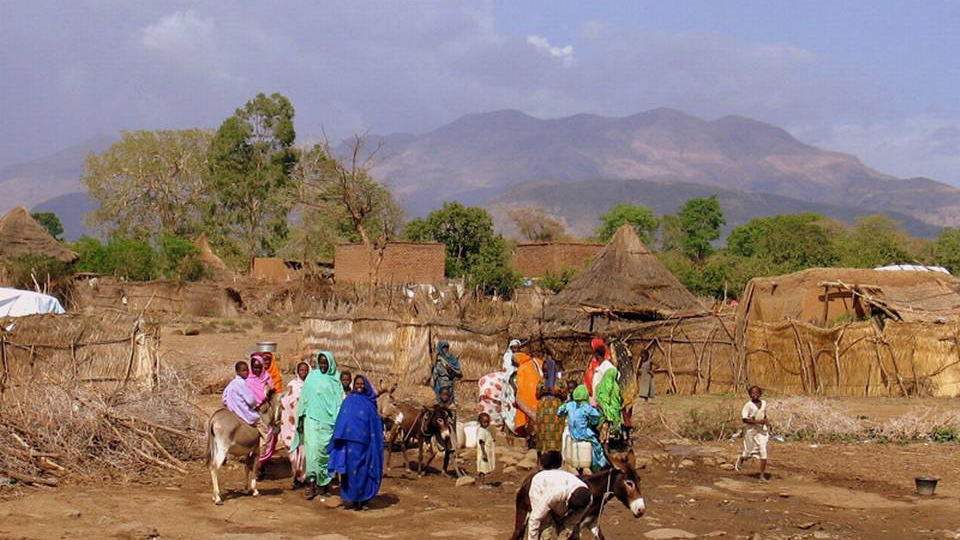SUDAN INSIDER |
This news summary is part of our Sudan Insider, a monthly newsletter
providing news and analysis on Sudan’s biggest stories.
Subscribe here to receive the Sudan Insider in your inbox.
…………………………………………………………………………………………………………..
More violence in Darfur, more ceasefires breached
What happened…
On the first day of 2017, gunmen killed nine civilians and injured 69 others in a town in central Darfur, Nertiti, within the restive Jebel Marra area, according to eyewitnesses and news reports. The government and the Darfur rebel group operating in this area, the Sudan Liberation Army-Abdel Wahid (SLA-AW), have both traded accusations as to who perpetrated the attack. Sudan’s General Aboud Mansour claimed only two civilians were killed in the incident.
According to eyewitnesses and local organizations, however, government soldiers indiscriminately attacked the Nertiti residents in a reprisal attack for the alleged killing of a soldier whose body was found on the outskirts of the town the previous day. The soldiers were under the command of Col. Mohamed El Tayib when they attacked civilians, local resident Adam Rijal and Abubakr Mohamed told Nuba Reports. Authorities relocated the army unit based in Nertiti and replaced them with another force due to the incident, the same sources said.
The attack took place just a day after President Omar al-Bashir announced a one-month ceasefire extension for the conflict in Darfur and the Two Areas: South Kordofan and Blue Nile states. The extension follows a four-month ceasefire announcement last June that was extended for another two months in October.
Violence in El-Geneina town, western Darfur, took place only four days later in the Al Jebel neighborhood of the town, leading to the death of seven people, including one child, and wounding eight others, local residents and reports said.
The reasons behind the violence remain unclear. A press statement by State Governor Fadl al-Mula says the violence erupted over a livestock dispute. A UN officer working in Geneina, however, claims authorities used stolen livestock as a pretext to target a former opposition group leader residing in the town.
What it means…
Bashir’s ceasefire pronouncements appear routinely hollow to events on the ground. The violence in Nertiti took one day after the ceasefire announcement. On January 9, government forces attacked the Sudan People’s Liberation Army-North rebels in Arum, Blue Nile State. This attack followed a prior conflict on December 9 in Jarden, Deim Manusr area in central Blue Nile State between the warring parties. It is unclear, however, who perpetrated the second attack. If orders did not come from the top, such incidents raise questions about how much Bashir and his generals truly can control their soldiers on the ground.
Before the U.S. State Department lifted economic sanctions, the ruling National Congress Party seemed committed to continued warfare for Darfur and the Two Areas. President Bashir declared during a Christmas day speech to the army that he would continue to seek a military solution for the internal conflicts. State Department officials then announced in January relief from U.S. sanctions that would become permanent in six months’ time, given sustained “positive actions” by Sudan that include a continued cessation of hostilities in the conflict areas.
Despite hosting a base in Nertiti town, the UN peacekeeping force, UNAMID, failed to protect civilians during the attack. The Darfur rebel leader Abdel Wahid denounced in a statement the lack of UN support as the “worst form of collusion with the Khartoum regime.” UNAMID has intensified its daily patrols in and around Nertiti following the reports of violence, UNAMID Media Relations Officer Priyanka Chowdhury said.
The conflicting information regarding the attack – with local eyewitnesses accusing SAF while the government accuses the rebels – exemplifies the lack of reliable information available on the ground. Khartoum effectively blocks journalists, both local and foreign, from covering the conflicts in Darfur and the Two Areas, creating an inevitable and dangerous information vacuum.





